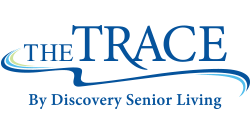Assisted living is a type of resident housing that provides supportive services to help residents maintain their independence and quality of life. However, navigating the terminology and jargon that comes with assisted living can be confusing, especially for those who are new to this type of care. In this blog post, we will provide a guide to some of the most common assisted living terms to help you make informed decisions about resident living options.
Activities of Daily Living (ADLs)
Activities of Daily Living (ADLs) refer to the basic self-care tasks that individuals need to perform on a daily basis. These include bathing, dressing, toileting, grooming, and eating. Assisted living communities often provide support and assistance with these tasks for residents who need it.
Assisted Living Facility (ALF)
An Assisted Living Facility (ALF) is a type of resident housing that provides support and assistance with daily living tasks, as well as social and recreational activities. ALFs are typically designed for older adults who are still able to live independently but require some level of assistance with daily tasks.
Care Plan
A Care Plan is a personalized document that outlines the resident’s specific needs and preferences, including medical conditions, medications, dietary requirements, and other individualized care needs. Care Plans are developed in collaboration with the resident, their family, and the assisted living staff, and are regularly reviewed and updated as needed.
Continuing Care Senior Living Community (CCRC)
A Continuing Care Senior Living Community (CCRC) is a type of resident living community that offers a range of housing and care options, including independent living, assisted living, and skilled nursing care. CCRCs are designed to provide residents with a continuum of care as their needs change over time.
Independent Living
Independent Living refers to resident housing that provides residents with an active, independent lifestyle, while also offering access to supportive services and amenities, such as housekeeping, transportation, and social activities. Independent Living communities may also offer options for higher levels of care, such as assisted living or skilled nursing care, as the resident’s needs change.
Long-Term Care Insurance
Long-Term Care Insurance is a type of insurance policy that helps cover the costs of long-term care services, including assisted living, skilled nursing care, and other types of resident care. Long-term care insurance can help protect residents from the high costs of care and provide peace of mind for themselves and their families.
Memory Care
Memory Care is a specialized type of assisted living that is designed for individuals with memory impairment, such as Alzheimer’s disease or other forms of dementia. Memory Care communities provide a secure and supportive environment, specialized activities and therapies, and trained staff who are experienced in caring for individuals with memory impairment.
Skilled Nursing Care
Skilled Nursing Care is a type of resident care that is provided by licensed nurses and other medical professionals. Skilled Nursing Care may be needed for residents who require ongoing medical treatment or monitoring, such as after surgery or during recovery from an illness or injury.
Assisted living can provide seniors with the support and assistance they need to maintain their independence and quality of life. By understanding the terminology and jargon that comes with this type of care, you can make informed decisions about senior living options that meet your needs and preferences. Whether you’re considering independent living, assisted living, or memory care, be sure to talk to a senior living specialist or visit communities in person to learn more about the services and amenities that are available.







